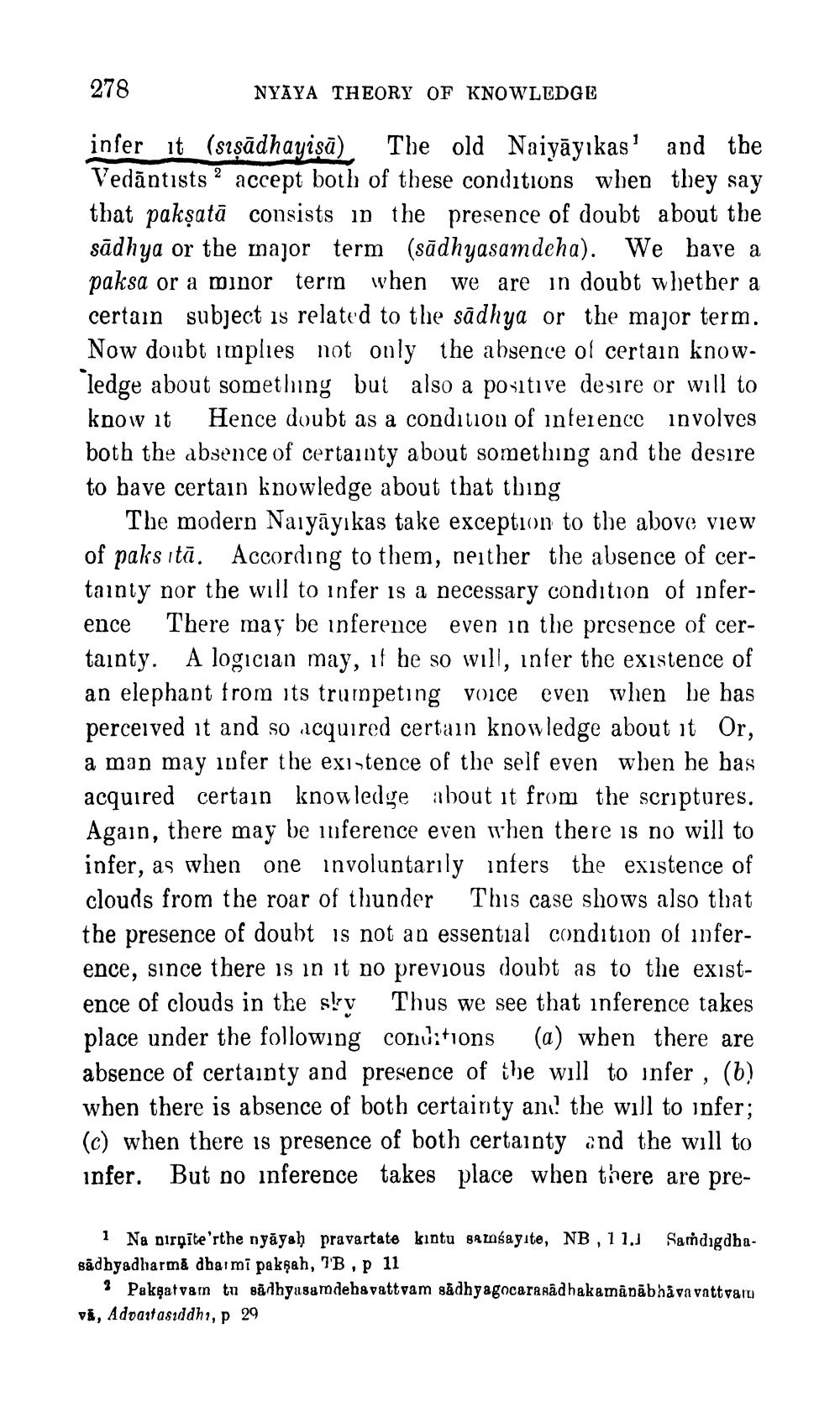________________
278
NYAYA THEORY OF KNOWLEDGE
inferit (sısādhayisā). The old Naiyāyıkas' and the Vedāntists? accept both of these conditions when they say that pakşatā consists in the presence of doubt about the sādhya or the major term (sādhyasamdeha). We have a paksa or a minor term when we are in doubt whether a certain subject is related to the sādhya or the major term. Now doubt implies not only the absence ol certain knowledge about something but also a positive desire or will to know it Hence doubt as a condition of interence involves both the absence of certainty about something and the desire to have certain knowledge about that thing
The modern Naiyāyıkas take exception to the above view of paks itā. According to them, neither the absence of certainty nor the will to infer is a necessary condition of inference There may be inference even in the presence of certainty. A logician may, it be so will, inter the existence of an elephant from its trumpeting voice even when he has perceived it and so acquired certain knowledge about it Or, a man may infer the existence of the self even when he has acquired certain knowledge about it from the scriptures. Again, there may be inference even when there is no will to infer, as when one involuntarily infers the existence of clouds from the roar of thunder This case shows also that the presence of doubt is not an essential condition of inference, since there is in it no previous doubt as to the existence of clouds in the slv Thus we see that inference takes place under the following conditions (a) when there are absence of certainty and presence of the will to infer , (b) when there is absence of both certainty and the will to infer; (c) when there is presence of both certainty and the will to infer. But no inference takes place when there are pre
1 Na dirpīte'rthe nyāyaḥ pravartate kintu sazaśayıte, NB, 11.1 Samdıgdhasādhyadharmă dbami pakşah, 7'B , p 11
3 Pakgatvam tn sālhyasamdehavattvam sådhyagocaranadhakamāpābhāvavattvaro vå, Adoartasiddhi, p 29




